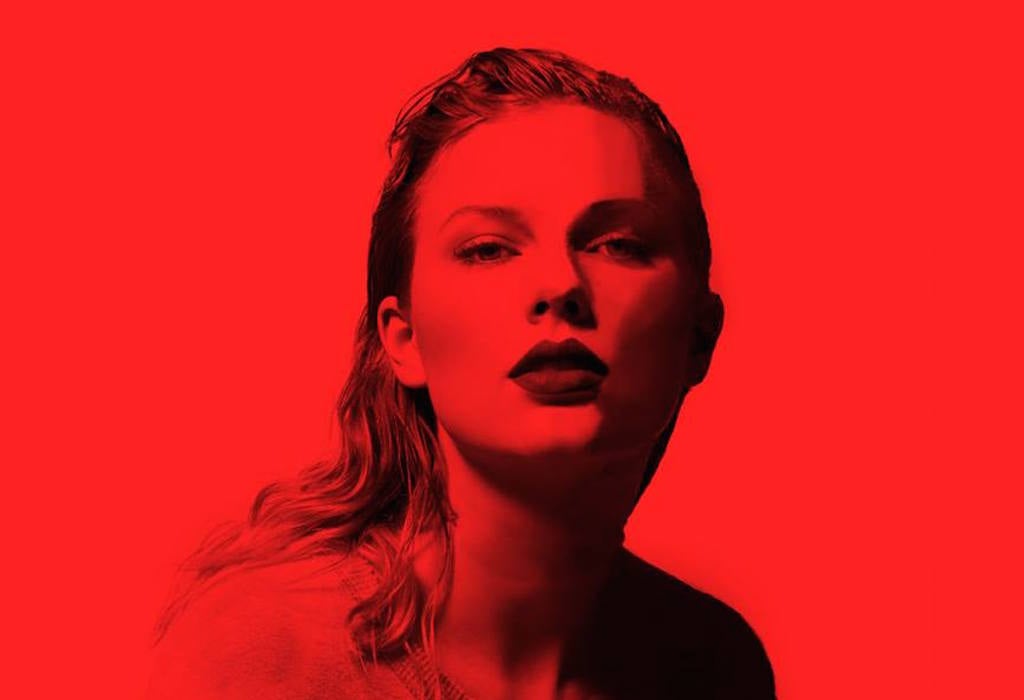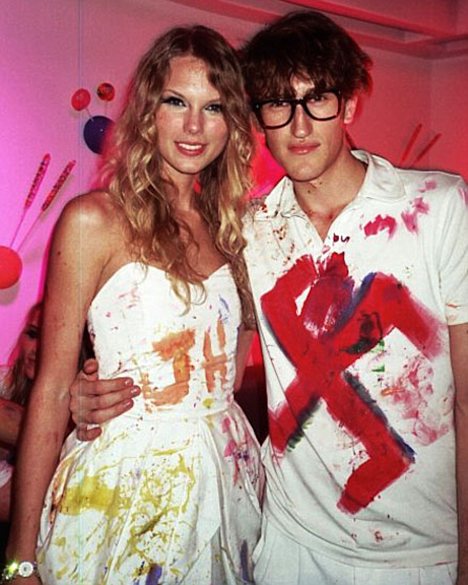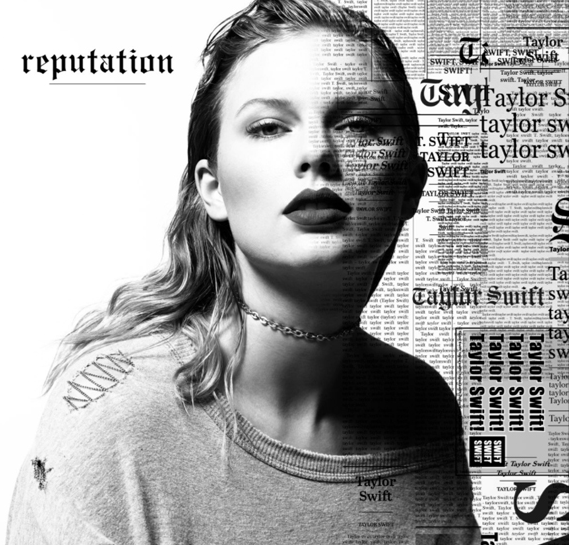If Taylor Swift Wants To Address Her Bad Reputation, She Should Start By Condemning Donald Trump
If Swift wants her career back, there's one thing she has to do.

In an interview with Sydney’s FBi Radio this year, folk-rock agitator Father John Misty went off-topic. “I have a theory that Donald Trump won the election because of Katy and Taylor’s beef,” he declared.
“She’s become a bit of a pop culture pariah,” he said, musing on Taylor Swift’s current PR problem. “I think it’s because she didn’t stump for Hillary. But you know her folks — like, her Dad’s a hedge fund manager — there’s no way her folks are Hillary people.”
It was an uncharacteristically lucid moment for a man known for his acid use and, most recently, being dubbed “Sir Fuckhead” by Ryan Adams on Twitter. For the first time in his career, Father John Misty might just be right about something.
Today, Taylor Swift announced her new album, Reputation. That title is, no doubt, a reference to what’s become of her image in the year that has marked her downfall — a new era of Swift that started last July, when Kim Kardashian posted the 22 most important Snapchats in pop culture history.
So bad was the backlash to being exposed as a fraud that Swift spent the year more or less in hiding — her posts on social media were mostly limited to birthday wishes for her famous friends, she stopped attending high-profile events, she didn’t hold her annual Fourth of July party. Depending on how cooked you like your conspiracy theories, she even started leaving her New York apartment inside a box to avoid paparazzi. Her house of cards collapsed.
But Taylor Swift’s biggest problem isn’t Kim Kardashian or Kanye West. It’s not even Katy Perry. If Taylor Swift wants her career back, there’s one thing she has to do: renounce Donald Trump.
Fairweather Feminism
But to understand the role politics plays in Taylor Swift’s downfall, we have to backtrack a bit.
In 2014, the world’s biggest popstar embraced feminism for the first time. When Swift’s habit of alluding to famous ex-boyfriends in songs — something she’d used to market her previous two albums — became too much of a punchline, she was forced to flip the script. Swift came back with 1989, an album that put female friendship centre stage and cashed in on feminism’s rising stock. She took aim at the media’s positioning of her in ‘Shake It Off’. In interviews, she called her portrayal as a clingy, desperate girlfriend “a little sexist”.
The world was on her side — after all, she was dead right about the sexism that accompanied conversations around her love life.
And the rebrand worked. Her high-gloss, photographic brand of feminism helped 1989 sell over six million copies in the US alone. Her squad of supermodels successfully allowed Swift to rebrand from a heartbreak tragic to a strong, independent woman who liked to have sleepovers with her besties and perform other non-threatening, female-centric activities. Her approach worked, for a while, because it was palatable. She and her friends were overwhelmingly hot, skinny, white and heterosexual. It was the type of feminism you could sell at Walmart.

Then two things happened: the tide began to turn on the brand of white feminism Swift’s squad exemplified, and conversations about race and representation began to heat up. Suddenly, the stuff Kanye West was saying at the VMAs all those years ago — that black artists are regularly overlooked at awards shows, despite their contributions to music culture — started to make a whole lot more sense.
With Kim K’s Snapchat leak, Swift’s narrative was finally exposed for what it was: a charade that played to age-old tropes of white victims and black monsters. But in her only statement about the leak so far, Swift displayed no contrition. In keeping with tradition, she played the victim card.
Amidst this high drama, the world was facing bigger problems. The same month that Kim K leaked Swift’s phone call with Kanye West, Donald Trump was confirmed as the Republican Party’s presidential candidate. Katy Perry, the one woman Swift didn’t have a problem bringing down, had already been campaigning all year for Hillary Clinton. Taylor Swift, champion of women, displayed no public enthusiasm about the prospect of America’s first female president. For a PR machine so intent on capitalising on Girl Power, it was a loud silence.
And she kept staying silent. When leaked audio caught Donald Trump advising men to grab women “by the pussy”, she stayed silent. When Trump was elected, she stayed silent. Still, today, she is silent. If Kim K exposed Taylor’s victimhood narrative as a fraud, the election of Donald Trump revealed her feminism to be nothing but smoke and mirrors.
Rising Up
Swift’s absence mightn’t have been so incriminating if it weren’t for the fact that every other major popstar had spoken out against Trump.
Perry campaigned hard for Clinton until the very end, and urged her followers to “RISE UP” when the results came in. Lady Gaga spoke and performed with Bon Jovi at a Clinton rally, protesting silently outside Trump Tower on the night of the election. Miley Cyrus threw her weight behind Bernie Sanders and then Clinton, posting a video of herself crying on election night, saying that Clinton deserved the presidency. That same night, Lorde tweeted in typically poetic terms about her own shock and horror.
Beyoncé performed at a Clinton rally and, during a surprise appearance at a Jay Z concert in early November, delivered a powerful speech urging America to elect its first female president. “There was a time when a woman’s opinion did not matter. If you were black, white, Mexican, Asian, Muslim, educated, poor or rich; if you were a woman, it did not matter,” she said, full of an optimism that would soon be dashed. “Look how far we’ve come.”
Even Lana Del Rey, who dodged questions on her politics longer than most, eventually revealed this year that she “hexed” Trump and vowed to stop using now-problematic American flag imagery.
Two months after the election, when some four million US women marched against Trump, Swift’s only contribution was a flimsy, too-late tweet of support. It was the final nail in her coffin: while Swift remained neutral, her musical contemporaries Perry, Cyrus, Rihanna, Ariana Grande, Madonna, Alicia Keys, Cher and Janelle Monae all hit the pavement.
When the going got tough, Swift hid — a modern age Marie Antoinette ensconced in Versailles, wondering why they wouldn’t just eat cake.
It probably didn’t help that Donald Trump is an on-the-record Taylor Swift fan:
… Or that Swift’s refusal to condemn Trump allowed far-right websites like The Daily Stormer to claim her as their “pure Aryan goddess”. Or that this 2009 photo of Swift posed next to a swastika began recirculating.

But what does Swift’s political abstinence have to do with her music? The problem is, partly, the expectation Swift set for herself.
She positioned herself as a proud feminist during a moment that suited her and used it to rebuild her identity and sell her music. But now, at one of the most significant times in US history — especially in the Southern states that form the bedrock of Swift’s country base — she’s nowhere to be seen.
Swift rode the white feminist wave. And now, instead of seizing the opportunity to take a stand, she’s ignoring the main fight. She’s trying to shift the battlegrounds and take back her “reputation” after a disastrous year. But it’s an old and tired battle, especially when there’s a bigger war to be won.
Taylor Swift’s ‘Reputation’
After last year’s Snapchat leak, it was hard to believe that Taylor Swift’s career would survive.
But twelve months down the track, her comeback is in motion. And it looks like Swift’s strategy has been plucked straight from the old playbook: those snake videos, the newly-hardened image and the none-too-subtle album art signal that, just like she did with 1989 three years ago, Swift is going to embrace the negative narrative around her, flip it, and try to reclaim it.

And here’s the thing: Taylor Swift can come back from her Kim and Kanye beef. Tomorrow she can release a catchy single and own her role in the past year’s controversy. She can wear too-tight chokers, rebrand as edgy and turn over a new leaf. She can bury the hatchet with Katy Perry. She can try to make good on her racial blind spot and incidents of cultural appropriation.
But until she stops pretending that she lives in a political vacuum, it won’t matter. Maybe Swift thought going public with her politics was too risky, that it would alienate her country music base and cost her album sales.
But by staying silent, it’s Swift herself — not Kim, not Kanye, not Katy — who’s made her look like the biggest fraud.
—
Katie Cunningham is the Editor of Music Junkee and inthemix, and a former Taylor Swift superfan. She is on Twitter.
Image design by mattjdesigns